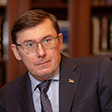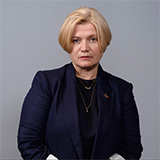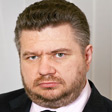Yushchenko mars Orange anniversary
Nov. 22 was the fourth anniversary of the Orange Revolution and, in the West and in Ukraine, fatigue is growing with Viktor Yushchenko, Ukraine's president and erstwhile Orange Revolution hero.
On Ukraine's domestic front, Ukrainians blame Mr. Yushchenko for four years of political instability that have led to repeated crises and the likelihood that five governments and three elections will come and go before the end of his first term in office. Internationally, Mr. Yushchenko's visit to Washington two months ago proved to be a diplomatic failure. Gone were the accolades that accompanied his triumphant visit to Washington four years earlier, when he was given the rare honor of speaking to both houses of Congress.
Yushchenko mars Orange anniversary
http://www.washingtontimes.com/news/2008/nov/26/yushchenko-mars-orange-anniversary/
Wednesday, November 26, 2008
Yushchenko mars Orange anniversary
Taras Kuzio SPECIAL TO THE WASHINGTON TIMES
ANALYSIS/OPINION:
Nov. 22 was the fourth anniversary of the Orange Revolution and, in the West and in Ukraine, fatigue is growing with Viktor Yushchenko, Ukraine's president and erstwhile Orange Revolution hero.
On Ukraine's domestic front, Ukrainians blame Mr. Yushchenko for four years of political instability that have led to repeated crises and the likelihood that five governments and three elections will come and go before the end of his first term in office. Internationally, Mr. Yushchenko's visit to Washington two months ago proved to be a diplomatic failure. Gone were the accolades that accompanied his triumphant visit to Washington four years earlier, when he was given the rare honor of speaking to both houses of Congress.
On the fourth anniversary of the revolution that brought Mr. Yushchenko to power, a newly released survey by the International Foundation for Electoral Studies (IFES) found increasing pessimism among Ukrainians regarding the direction in which their country is headed. Mr. Yushchenko's job-approval rating stands at 3 percent. Eighty-two percent of Ukrainians express no confidence in him, and three-quarters think he should not stand for a second term.
This deep unpopularity and lack of trust raises the question: How can Mr. Yushchenko hope to successfully lead Ukraine out of the global financial crisis?
Rather than address the crisis, Mr. Yushchenko is opting for self-preservation by dissolving parliament for a third time and calling for pre-term elections. It is widely thought, both at home and abroad, that his objective is once again to stop Yulia Tymoshenko's reign as prime minister. Mr. Yushchenko has punctuated this fact by derailing his own party's negotiations to form a renewed, more stable Orange Coalition with Mrs. Tymoshenko's bloc.
The president's actions fail to recognize Ukraine's need for a stable government during this time of global financial crisis. Ukraine is currently held in a captive state, crippled by the ongoing crisis. Now more than ever, the country's national interests must take precedence over Mr. Yushchenko's bitter disdain for Mrs. Tymoshenko.
Brussels and Washington are aghast at the prospect of a president who is so oblivious to the consequences of his actions, contemplating destabilizing elections and fostering domestic political chaos while his country is facing the monumental challenge of a global crisis.
The vast majority of the the president's domestic supporters also have deserted him; indeed, many have joined Mrs. Tymoshenko. Most of the president's longtime business and political allies have questioned his strategy, only to find themselves ostracized. Only a week ago, the president betrayed one of Ukraine's best economists, parliamentary Speaker Arseniy Yatseniuk. In supporting the removal of the popular speaker, the president has chosen to further incapacitate parliament at a time when it is most needed to assist in dealing with the global crisis.
In continuing to foster political instability and to hamstring parliament, Mr. Yushchenko is playing with fire. Ukraine just negotiated a $16.5 billion loan with the International Monetary Fund in an effort stave off the collapse of its banking sector. The IMF has since insisted on parliament adopting anti-crisis measures that require political and governmental stability. However, the perpetual political crisis has hindered the implementation of much-needed structural reforms, blocked the launch of the current government's radical privatization plan and reduced the government's ability to lower inflation.
On the foreign front, plans for NATO expansion to Ukraine also have been derailed by domestic political instability. There has never been a Ukrainian government in office long enough to launch a national campaign to build a consensus around NATO membership. Support for NATO membership needs to be increased and currently oscillates between one-quarter and one-third of the Ukrainian people. The day he disbanded parliament, Mr. Yushchenko made the chances of achieving a NATO Membership Action Plan at next month's NATO review conference obsolete.
Mr. Yushchenko was warned by Western ambassadors to choose between undermining the Tymoshenko government and moving his country toward NATO. He inexplicably chose the former. Stephen Larrabee, who holds the corporate chair in European security at the Rand Corp., blamed Mr. Yushchenko "for undermining Ukraine's integration into the West."
With the possibility of Mr. Yushchenko's re-election in just a year's time, the new U.S. administration needs to follow Europe in refocusing its vision of Mrs. Tymoshenko as the only Orange leader capable of defeating the pro-Russian Viktor Yanukovych, beholden to corrupt, oligarchic barons. A Tymoshenko presidency could provide Ukraine with a second chance of relaunching the reforms demanded by millions of Ukrainians four years ago, which would bring Ukraine out of the Russian bear's embrace and into the West.
Mr. Yushchenko had his chance, and he has failed.
• Taras Kuzio is editor of the bimonthly Ukraine Analyst and an adjunct professor in the Institute of European, Russian and Eurasian Studies, Carleton University, Ottawa.







